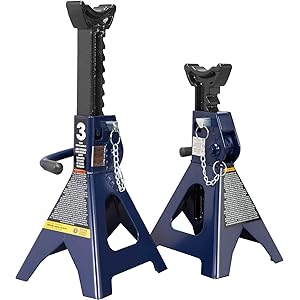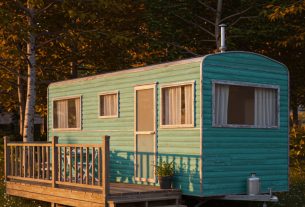As I embarked on my journey to find affordable housing, the thought of trailer homes, or manufactured homes, crossed my mind. After much research, I realized that financing a trailer home is not only possible but also comes with various options tailored to meet different financial situations. In this article, I’ll share my discoveries about financing trailer homes, the options available, and how you can get started on this exciting venture today!
Understanding Trailer Homes
Before diving into financing options, it’s crucial to understand what trailer homes are. Often referred to as mobile homes or manufactured homes, these residences are built in factories and then transported to their locations. Unlike traditional homes, which are built on-site, trailer homes offer unique advantages such as lower costs, flexibility, and quicker setup times.
Why Consider a Trailer Home?
Many people, including myself, are drawn to trailer homes for several compelling reasons:
- Affordability: Trailer homes often cost significantly less than traditional homes, making them an attractive option for first-time buyers or those on a budget.
- Flexibility: They can be placed in various locations, whether in a mobile home park or on private land, allowing for lifestyle choices that suit individual needs.
- Lower Maintenance Costs: With fewer square feet and simpler construction, maintenance costs can be lower compared to traditional houses.
Financing a Trailer Home: The Basics
When it comes to financing a trailer home, the process can be different from obtaining a mortgage for a traditional home. I learned that several factors come into play, including the home’s classification, the land it sits on, and the type of financing available.
Types of Trailer Home Financing
There are primarily three types of financing options for trailer homes:
- Chattel Loans: These are personal property loans designed specifically for mobile homes not attached to land. They often come with higher interest rates and shorter terms.
- Conventional Mortgages: If the trailer home is permanently affixed to land you own, it may qualify for a conventional mortgage, similar to financing a traditional home.
- FHA Loans: The Federal Housing Administration offers loans for manufactured homes that meet specific requirements, making them accessible for many buyers.
Exploring Financing Options in Depth
1. Chattel Loans
Chattel loans are tailored for mobile homes that are not classified as real estate. This means if you purchase a trailer home but do not own the land it sits on, a chattel loan may be your best option. I found that these loans typically have:
- Shorter repayment terms, often ranging from 5 to 20 years.
- Higher interest rates, which can sometimes exceed 10%.
- Less stringent credit requirements compared to traditional mortgages.
While chattel loans can be easier to qualify for, it’s essential to consider the long-term costs since the higher interest can add up. I recommend shopping around and comparing lenders to find the best rates available.
2. Conventional Mortgages
If your trailer home is permanently affixed to land you own, you could secure a conventional mortgage. This type of financing has several advantages:
- Longer repayment terms, typically 15 to 30 years.
- Lower interest rates compared to chattel loans.
- Potential for tax deductions on interest paid.
To qualify for a conventional mortgage, the trailer home must meet certain standards, such as being built after June 15, 1976, and having a permanent foundation. It’s crucial to work with a lender familiar with manufactured home financing to navigate the requirements.
3. FHA Loans
The Federal Housing Administration (FHA) offers loans specifically designed for manufactured homes. These loans can be an excellent option for those with lower credit scores or limited down payment capabilities. Key features of FHA loans include:
- Low down payment options, sometimes as low as 3.5%.
- Flexible credit score requirements, making it accessible for many buyers.
- Ability to finance both the home and the land in one loan.
However, it’s important to note that the home must meet FHA standards and be classified as real estate. Researching and ensuring your trailer home qualifies can save you a lot of hassle down the road.
Other Financing Options to Consider
Aside from traditional loans, I discovered various alternative financing options that may work for your situation:
Personal Loans
Personal loans can be a suitable option for financing a trailer home, especially if you have strong credit. These loans are unsecured and can be used for various purposes, including purchasing a mobile home. However, interest rates can be higher than traditional mortgages, so it’s essential to weigh the pros and cons.
Credit Unions
Many credit unions offer competitive loan rates and favorable terms for trailer homes. If you’re a member of a credit union, I highly recommend checking with them first. They often have a more personalized approach to lending and may provide better customer service.
Manufacturer Financing
Some manufacturers of trailer homes offer financing options directly through their dealerships. This can simplify the process and allow for a streamlined experience. However, it’s crucial to compare their rates with other options to ensure you’re getting the best deal.
Steps to Get Started with Financing a Trailer Home
After understanding the various financing options, I compiled a series of steps to help you navigate the process smoothly:
- Assess Your Financial Situation: Start by evaluating your credit score, income, and debts. This will help you determine which financing options are available to you.
- Research Trailer Home Options: Decide on the type of trailer home you want, whether new or used, and whether you’ll need to purchase land or place it in a mobile home park.
- Get Pre-Approved: Approach lenders to get pre-approved for a loan. This will give you a better understanding of your budget and strengthen your negotiating position.
- Compare Lenders: Don’t settle for the first offer. Shop around and compare rates, terms, and customer service to find the best lender for your needs.
- Complete the Application: Gather necessary documents, including income verification, credit history, and information about the home, to complete your loan application.
- Close the Deal: Once approved, review the loan terms carefully before signing. Ensure you understand all fees and obligations.
Case Studies: Real-Life Experiences
To provide a clearer picture of the financing journey, I looked into a few case studies of individuals who financed their trailer homes. Here are two inspiring stories:
Case Study 1: The Johnson Family
The Johnsons were a young family looking for affordable housing. With a combined income of $50,000 and a modest credit score, they initially thought homeownership was out of reach. However, after researching, they qualified for an FHA loan, which allowed them to purchase a new manufactured home on their own land with a 3.5% down payment. Their monthly payments fit comfortably within their budget, and they are now proud homeowners.
Case Study 2: Sarah’s Journey
Sarah, a single professional, opted for a used mobile home in a park. She decided to go with a chattel loan due to the lower cost of entry. Although the interest rate was higher, she was able to secure a loan quickly and efficiently. After a few years of living in the trailer home, she saved enough to either upgrade or finance a more permanent residence. Sarah’s story highlights that financing a trailer home can be a stepping stone to future homeownership.
Common Myths About Trailer Home Financing
As I researched, I came across several myths regarding trailer home financing that I wanted to clarify:
- Myth 1: You can’t finance a trailer home. Fact: Many lenders offer financing specifically for trailer homes.
- Myth 2: Trailer homes have no resale value. Fact: While they may depreciate faster than traditional homes, many maintain significant value.
- Myth 3: Financing options are limited. Fact: There are numerous options available, including FHA loans, chattel loans, and personal loans.
Conclusion: Take the Next Step Toward Homeownership
Financing a trailer home is indeed possible and can be a smart choice for many individuals and families looking for affordable housing options. By understanding the various financing options available, assessing your financial situation, and taking proactive steps, you can successfully navigate this journey.
Remember, you’re not alone in this process. Countless individuals have successfully financed trailer homes and are now enjoying the benefits of homeownership. I encourage you to take the first steps today, whether that means researching homes, contacting lenders, or simply envisioning your future in a trailer home.
FAQs
1. Can I finance a used trailer home?
Yes, you can finance a used trailer home, but the options may vary. Chattel loans and personal loans are common routes for used homes.
2. What is the average interest rate for trailer home loans?
Interest rates can vary widely based on the type of loan and your credit score, but they typically range from 5% to 10% for chattel loans.
3. Do I need a down payment for a trailer home loan?
Many loans require a down payment, but FHA loans can be as low as 3.5%. Always check with your lender for specific requirements.
4. Are trailer homes considered real estate?
Trailer homes can be considered real estate if they are permanently affixed to land. This classification affects the type of financing available.
If you found this article helpful, please consider signing up for our newsletter for more insights and tips on homeownership. Share this article with friends and family, and let’s spread the word about the possibilities of trailer home financing!
TCE 3 Ton (6,000 LBs) Capacity Double Locking Steel Jack Stands, 2 Pack, Blue, AT43002AU
$27.71 (as of November 15, 2025 07:52 GMT -03:00 - More infoProduct prices and availability are accurate as of the date/time indicated and are subject to change. Any price and availability information displayed on [relevant Amazon Site(s), as applicable] at the time of purchase will apply to the purchase of this product.)
Sign up for our newsletter and stay up to date with exclusive news
that can transform your routine!





